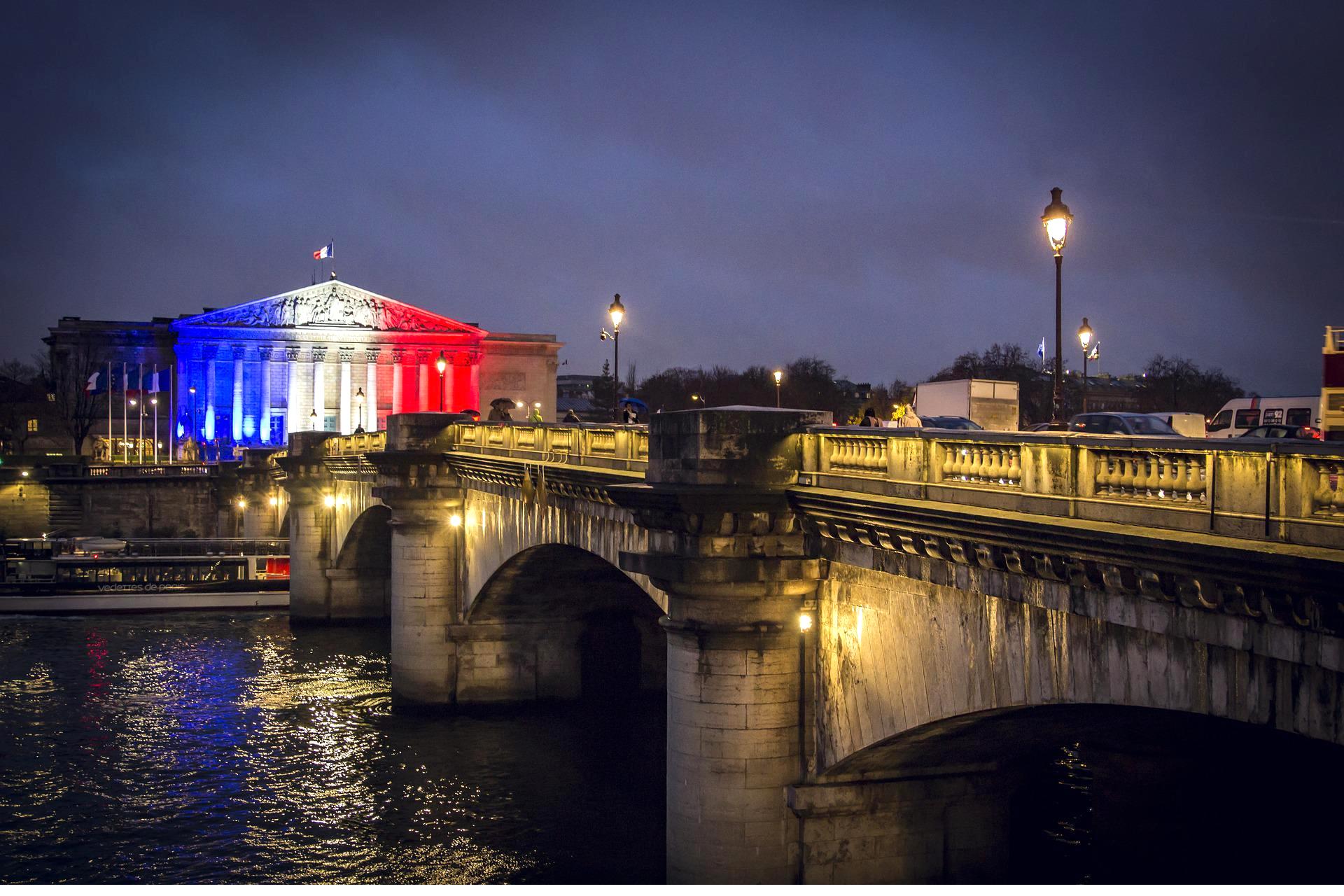In 2024, Paris will organize the Summer Olympics, an opportunity for the French government and industrialists to join forces to test, deploy and standardize their arsenal of new surveillance devices: drones, facial recognition, behavior analyses, etc. comes back here on what we know today about this dystopian project, on what has already been tested and on the resistance that is being organized.
The Olympic Games, surveillance accelerators
The Olympic Games have long been an opportunity for an intensification of population surveillance tools. This was the case for Beijing in 2008, with a massive deployment of cameras in the streets and in public transport. But also in Rio de Janeiro where from 2010, in preparation for the 2016 Olympics, the IBM company took advantage of this opportunity to develop its Integrated Operation Center, “Command and Coordination Center”. This command center aimed to aggregate data from the municipality, communities, public transport, weather, etc., with the aim of obtaining real-time information and building predictive models for managing the town. This is the beginning of the fantasy of remote control of the city.
Finally, the Tokyo 2020 Olympic Games – which finally took place in the summer of 2021 – are positioned as the Olympic Games that have used the most technological gadgets (autonomous cars, robots, etc.) and the first uses of facial recognition. The latter was intended to filter access to certain places (by scanning the faces of athletes, journalists, etc.) using a system provided by the Japanese company NEC and the French Atos (also present at the Olympics 2024). Several associations had thus denounced, in July 2021, the danger of biometric surveillance deployed in Tokyo. If in Tokyo facial recognition has been implemented on an audience strongly limited by the health crisis, the Paris 2024 Olympics would be the first major event to deploy this type of device on millions of visitors.
Here are major events becoming security accelerators and transformers. They make it possible to bring certain hitherto illegal technologies and practices into common law, thus breaking the lock that was blocking their massification. In the middle of the vote, the Drone 2 law should be placed in the context of the future Olympic Games: the Ministry of the Interior has already purchased 600 drones and would like to be able to use them for the Olympic Games.
Industrialists and government hand in hand
The French government does not intend to miss its 2024 meeting either. Michel Cadot, the interministerial delegate for the Games, thus considers that “the question of security is a priority” when, for his part, the prefect Pierre Leutaud underlines that ” technological innovations will be a major asset”. Last September, Jean-Michel Mis, MP for the majority, submitted an entire report to the Prime Minister aimed at the legalization of these new surveillance devices, pushing for the adoption of a law facilitating biometric surveillance for the Games.
It is even clearer on the side of the security industry, who have come together in a committee called “GICAT” – “Grouping of French defense and land and air-land security industries” – a pressure lobby on the public authorities aimed at facilitating the deployment of their monitoring devices. Its delegate, Gérard Lacroix, has no problem emphasizing that the Olympic Games will be an essential issue for French companies and that he intends to make parliamentarians understand the need to “change certain texts” that are too restrictive. Understand: the texts that protect freedoms.
Other lobbies, those of the “Comité Filière Industrielle de sécurité” for “COFIS” (a sort of institutional link between the main security industries and the government) and the “Safe Cluster” (a “competitive cluster for security and safety sectors”), both directly at the origin of a lobby site “I innovate for the Olympics”.
Finally, it should be noted that the State has already begun to financially support these projects. As we wrote here, the National Research Agency (ANR) has already funded several million euros for experiments in automated video surveillance (surveillance of social networks, suspicious movements, facial recognition), even though the most of these projects are purely illegal.
Upstream preparations: crazy experiments
The Olympic Games have been preparing for a long time and the Rugby World Cup in 2023 seems to be looming to be a kind of security dress rehearsal. But before that, we must develop the technologies, train the agents who will use them and anticipate the reactions of the public. It is first of all a question of financing, of experimenting in real size with illegal technologies. While the legislative framework does not authorize in any case – for the moment – this type of processing of biometric data, manufacturers and public authorities go through the very convenient process of “experiments”. These, by their temporal and spatial framing, would make surveillance (and the violation of the law) more “acceptable” – this is moreover the whole angle taken by Jean-Michel Mis in his techno-police report.
Thus, from 2020, experiments were planned and confirmed in France, in particular to try facial recognition devices. In Metz, in 2020, a facial recognition device was tested at the entrance to the stadium, drawing criticism from the CNIL (for the illegality of the project) and from supporters.
This was also the case during the Roland Garros tournament in the fall of 2020, where the French Tennis Federation (FFT), in partnership with the Strategic Committee for the “Security Industries” sector and the JOP 2024 brand team, hosted several experiments, as announced in the Senate.
Municipalities take the opportunity to join the security agenda
Beyond these experiments, several local authorities are getting organized to fundamentally transform their security arsenal. This is the case of Élancourt, which will host certain Olympic Games competitions and which signed a contract in 2019 with the company GENETEC to experiment with new types of video surveillance. The city’s objective is even to become a “showcase” for the company, with a new police station for 2024.
This is also the case of Saint-Denis, where a brand new urban supervision center (CSU) was created in 2021. The technical park, now equipped with 93 cameras, will be expanded to reach 400 cameras in 2024 for the Olympic Games. And elected officials are already planning to equip video surveillance with artificial intelligence to automate the detection of offenses.
Thus, elected officials are taking the opportunity to renew their surveillance systems and accelerate the installation of technologies, surfing on the security wave.
Fighting against the Olympic Games and the world they embody
For a long time, the Olympic Games have raised reluctance and protests from the inhabitants of the cities hosting the events, cracking the perfectly polished image produced by the IOC and the metropolises. Over the years, struggles against the Olympic Games and the world they represent have multiplied and been coordinated around the world.
In France, the NO to the 2024 Olympics and Saccage 2024 collectives emphasize the social, ecological and security plunder of the 2024 Olympics. a solarium attached to a training pool. A land occupation had even been launched. Until the expulsion of the activists and the destruction of these gardens, a few days before part of the project was declared illegal by the courts. Events are organized, as here, in Aubervilliers, on October 16, to face the Olympic aggression whether it is the case of Aubervilliers, other cities or more generally questions of surveillance (read the forum “No to Big Brother Olympic”).
Conclusion
Next week will open in Paris the Milipol exhibition, one of the largest international internal security exhibitions. An international meeting of repression. The cream of French technology will be exhibited: Thalès, Evitech, Two I, Atos and Idémia. On the program in particular, a return to the G7 in Biarritz, considered a model to follow in terms of managing major events. Inspiration for the 2024 Olympics?
Source: La Quadrature








